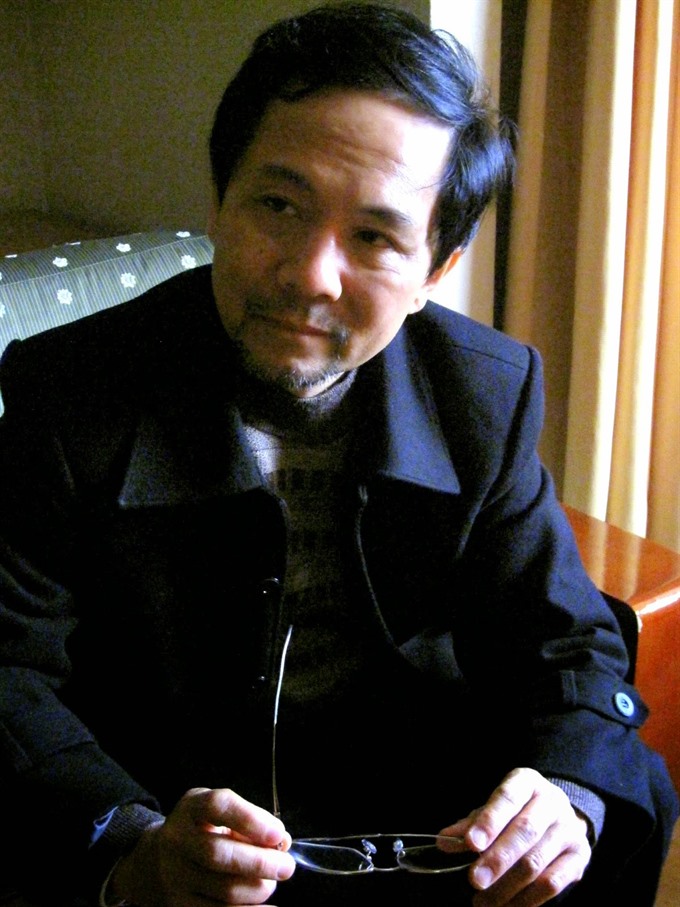 Life & Style
Life & Style

Hải Phòng-based Mai Văn Phấn has become the second poet from Việt Nam to be honoured with the prestigious Cikada Prize.
 |
| Poet Mai Văn Phấn. — VNS File Photo |
HÀ NỘI — Hải Phòng-based Mai Văn Phấn has become the second poet from Việt Nam to be honoured with the prestigious Cikada Prize.
Established in 2004, the Cikada Prize is awarded to an East Asian poet who “in his/her poems shows poetic sensitivity for the inviolability of life”. The prize was founded on the 100th birth anniversary of Swedish Nobel Prize laureate (in literature, 1974) Harry Martinson. The winner gets SEK 20,000 (US$2,200) and a ceramic art piece made by Swedish artist Gunilla Sundström.
The Swedish Institute finances the award, which is presented by the Ambassador or Consul General of Sweden in the country where the recipient resides.
The name of the award was inspired by Martinson’s anthology of poems Cikada, which was published in 1953. The award is given to East Asian poets as a recognition of the inspiration the Swedish writer found for his own poetry in East Asian literature, and because the rich poetry of these countries deserves better international recognition.
Phấn, who was born in 1955 in the northern province of Ninh Bình, is the tenth poet living in East Asia to win this award. He has received many literary awards in Việt Nam, and his poetry has been published in a number of volumes in English and French.
The Vietnamese poet is also represented in international anthologies such as the Swedish Till: Igår-Tolv Vietnamesiska Poeter (Tranan, 2009), translated by Erik Bergqvist.
Later this year, Tranan will publish a special collection of his poetry in Swedish, translated by Erik Bergqvist and Maja Thrane.
Phấn, who is thrilled to have won the award, will receive the prize at a ceremony in Hà Nội in November.
“I could not imagine that my poetic space, which has strong traditional identity, and my personality allure readers, especially smart judges in the other half of the globe,” he told Việt Nam News. “I feel happy and now more strongly believe in the process of renovating poetry as well as the role of Vietnamese poetry in the world.”
The Cikada Prize jury includes Dr Lars Vargö, chairman of jury, ambassador, writer and chairman of Swedish Haiku Society; Göran Bäckstrand, former deputy secretary general of Swedish Red Cross and vice-chairman of Harry Martinson Society; and Kaj Falkman, ambassador, poet and writer and chairman of Swedish-Japanese Society.
“Phấn is among the most interesting poets, and has more than 20 anthologies published,” Vargö wrote. “His poems are silent and sharp. Behind verses are traditional Asian rhythms that bear modern characteristics. They express daily worries and political incidents in a developing country that is seeing rapid economic growth.”
Phấn has created a kind of poetry that is similar to slow food... it is impossible to deny modernity in his long poems rather than his short Haiku-style poems. It’s better to read all his poems to judge his works’ diversity, Vargö added.
The award was given to Japan’s Sô Sakon (1919-2006) in 2004; Kaneko Tota from Japan in 2005; Ko Un from South Korea in 2006; Shin Kyong-Rim from South Korea in 2007: Moon Chung-hee from South Korea in 2010; Mizuta Noriko from Japan in 2013; Bei Dao from mainland China in 2014; Hoàng Thị Ý Nhi from Việt Nam in 2015; and Yang Mu from Taiwan in 2016. — VNS




